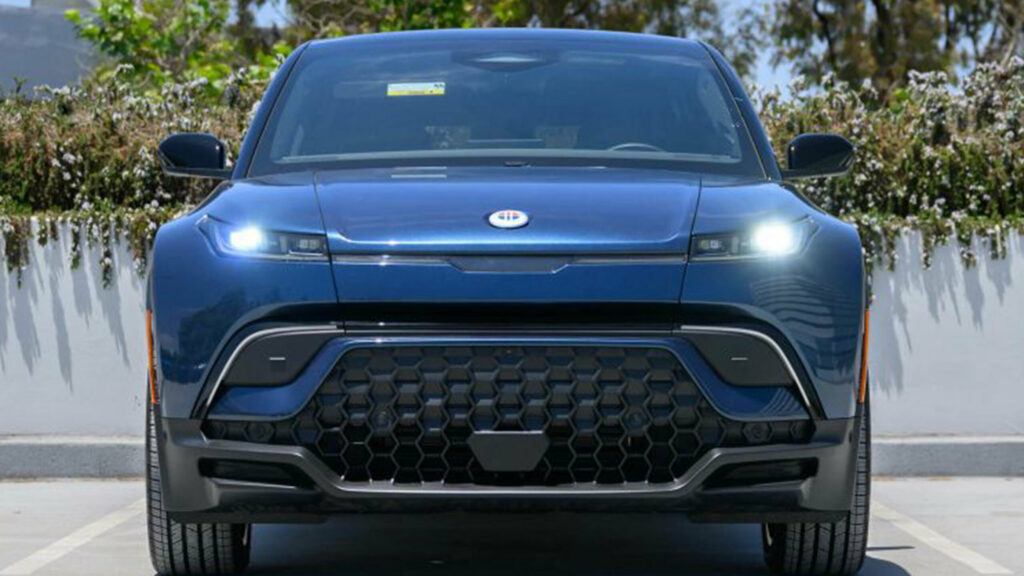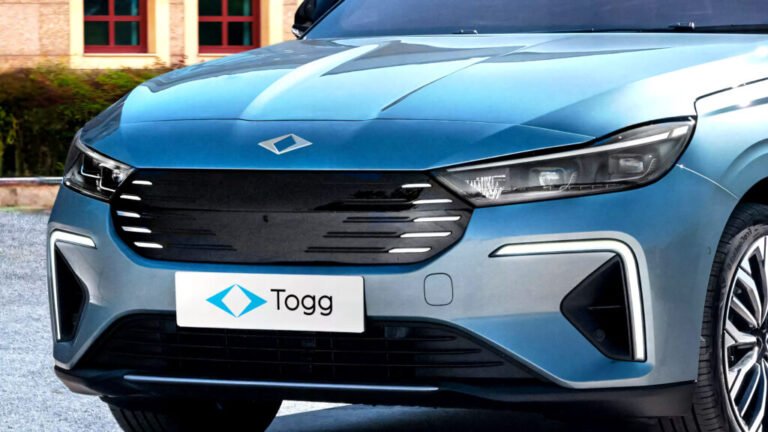

- The Fisker Ocean One has plenty of power and a claimed range of 360 miles.
- Unfortunately, the selling dealer notes that any buyer will be on the hook for repairs.
- Newport Fisker in California is trying to part ways with well over a dozen Oceans.
Buying an electric vehicle from a carmaker that’s already gone under sounds like the kind of gamble best left to thrill-seekers, yet we suspect that the Fisker Ocean has become so absurdly cheap that plenty of buyers will probably talk themselves into rolling the dice.
In late July, we discovered that Newport Fisker in Costa Mesa, California, was attempting to offload no less than 24 used Ocean, all of which had been heavily discounted to between $22,990 and $27,990. Fast forward to September, and the prices of many of these models have been slashed even further, with no less than four examples now available for just $17,990.
Bargain Pricing With Caveats
The blue Fisker Ocean you see here is one of them. While it officially has a sticker price of $21,990, that falls to $17,990 for those who are eligible to receive the used EV federal tax credit before the Trump administration ditches it at the end of September. This means it’s possible to buy a low-mileage electric SUV for roughly the same price as a new Nissan Versa.
This ultra-affordable Ocean has been driven just 9,200 miles and includes a tow hitch, a Level 2 home charger, and all-weather floor mats. There’s no word on whether the EV has received all of the recall repairs that Fisker has issued.

In terms of performance, it undeniably represents great value for money at under $20,000. This 2023 model is an Ocean One, meaning it has twin electric motors combining to deliver 564 hp, allowing it to hit 60 mph (96 km/h) in less than 4 seconds. It also features a large 106 kWh battery pack that gives it up to 360 miles (580 km) of range.
What if Something Goes Wrong?
If the deal sounds to good to be true and you wonder where the catch is, this could be the fact that the dealer notes that “should the vehicle prove defective following their purchase, the buyer and not the manufacturer, distributor, or retailer assumes the entire cost of all necessary servicing and repairs.”
In other words, once the Fisker’s keys are yours, so are the risks. If something goes wrong, you’re responsible for footing the bill to get if fixed.
So, would you take the plunge on a bargain-bin EV from a company that no longer exists, or does the thought of hunting down parts for a ghost-brand SUV make you run for the hills?


